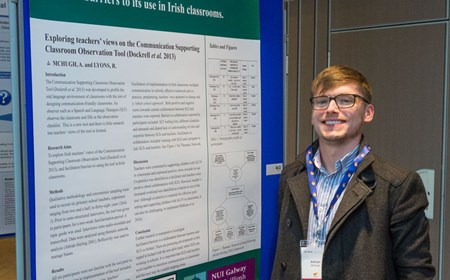To work as an SLT in Ireland, you must have completed a course that is approved by the regulator CORU. Upon completion of study, you must register with CORU, the regulating body for Health and Social Care Professionals (HSCPs) in Ireland.
You can access CORUs approved qualifications list here: Speech and Language Therapists - Approved Qualifications - Coru
If you have qualified from an international course that is not approved by CORU or from a course that is approved by a regulator other than CORU you will have to go through the international recognition of qualification process with CORU before you can register with CORU.
In the Republic of Ireland, there are currently three undergraduate degree programmes and one master’s programme that are CORU approved. This is important as it ensures that standards of education for speech and language therapists also meet strict criteria to ensure the protection of the public. All four programmes are also accredited by IASLT. Each college also has an entry route for mature students which you can look up on their website.
Undergraduate degree programmes:
Masters programme:
The courses offer a broad education in line with CORU and IASLT Standards of Proficiency and students take part in supervised clinical placements with qualified therapists during their college education (see practice education below).
Practice Education:
Practice education is a fundamental part of student learning and development when studying Speech and Language Therapy. It involves going on a clinical placement in a Speech and Language Therapy service where the student gains hand-on experience under the supervision of a speech and language therapist who is registered with CORU.
All student speech and language therapists are required to complete 450 hours of clinical practice in order to be eligible to graduate and register with CORU to practise as a Speech and Language Therapist. IASLT and its members have a strong and consistent record of supporting student placements to ensure that students achieve the competencies required to meet CORUs Standards of Proficiency.
In Ireland each person with a Speech and Language Therapy qualification needs to register with CORU in order to be able to call themselves a speech and language therapist and practice Speech and Language Therapy. This is because the title “Speech and Language Therapist” is protected under the Health and Social Care Professionals Act 2005. In order to use the title of Speech and Language Therapist a person must hold a valid qualification from an a CORU approved Speech and Language Therapy programme and this person must register with CORU.
In Ireland there are currently 3 university degree programmes and one master’s programme. All four programmes are accredited by IASLT. These four university programmes are also approved by CORU. This is important as it ensures that standards of education for speech and language therapists also meet strict criteria to ensure the protection of the public.

It is possible to complete a programme of study outside the Republic of Ireland or complete an international course in the ROI and still be eligible to work within the Republic of Ireland. The CORU recognition is the process by which professional qualifications obtained outside of Ireland are assessed and validated against Irish standards. This is necessary for professionals who wish to practice in a regulated profession in Ireland but have gained their qualifications abroad.
If you achieved your qualifications from an international course (not CORU approved) or a course that is approved by a regulator other than CORU, you will need to apply for recognition of your international qualifications before you can apply for CORU registration.